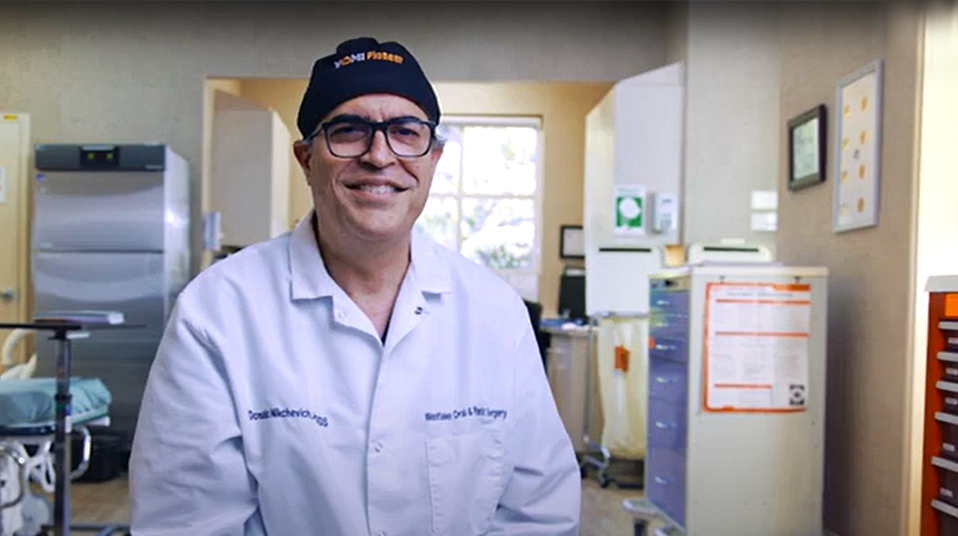Wisdom Teeth Removal
Dentists refer patients to our practice for surgical removal of wisdom teeth because of the expertise and experience of our surgeons, who perform these procedures on a daily basis. We also have a dedicated surgical facility with the most advanced equipment available for optimal patient safety and comfort. Dentists refer patients to our practice for surgical removal of wisdom teeth because of the expertise and experience of our surgeons. We also have a dedicated surgical facility with the most advanced equipment available for optimal patient safety and comfort.
For patients who prefer to reduce or eliminate the need for opioids to manage pain, we offer Exparel® one-dose local analgesic that provides long-lasting relief after surgery.
The Benefits of Wisdom Teeth Removal
The main reasons to consider extracting wisdom teeth are to avoid discomfort and oral health issues. These include:
- Pain and sensitivity around the impacted teeth
- Infection in and around the gums
- Damage to adjacent teeth
- Cysts around the jawbone
- Crowding of other teeth
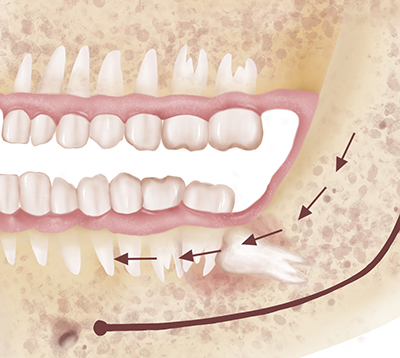
Pain & Sensitivity
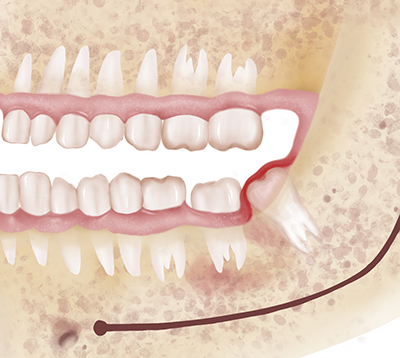
Infection
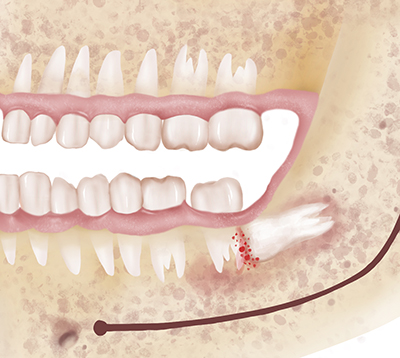
Damage to Teeth
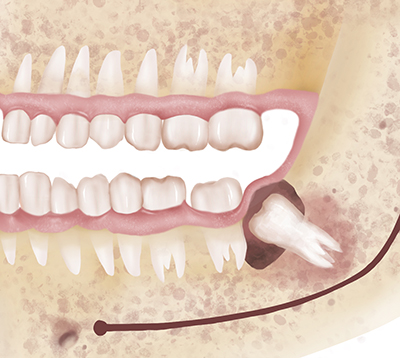
Cysts
Our surgeons recommend wisdom teeth removal before reaching adulthood for several reasons:
- As the teeth develop, the roots continue to grow longer and the jawbone becomes denser. This increases the difficulty and complexity of removing the teeth.
- The more established the wisdom teeth become, the more discomfort you could experience following surgery.
- After age 30, people are much more likely to have problems associated with impacted teeth.
The American Association of Oral and Maxillofacial Surgeons has published a White Paper regarding the importance of removing wisdom teeth in patients at risk of developing disease. You can read the full report here.
The Process of Wisdom Teeth Removal
The first step is a comprehensive evaluation and consultation, which includes the following:
- Your surgeon will perform a comprehensive examination, determine whether your wisdom teeth should be removed, and answer any questions you may have.
- The options available for anesthesia will also be discussed and your surgeon will make a recommendation to ensure that you are as comfortable as possible and completely pain-free during the surgery.
- We will explain what you can expect during and after your procedure, We will also give you instructions to prepare for the day of your surgery.
After your procedure, you will go home with post-operative instructions, which we will also have discussed during your initial consultation. Click here for detailed post-surgical instructions.
